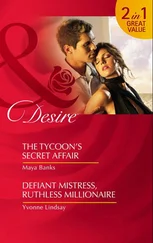The doge sat upon his scarlet couch, sifting through a document. Today he showed total self-possession. He had grown up in a night. Today he was not Cupid. Today he was a king.
“Ah, Lorenzo,” he said. “Come. We are missing only your signature.”
Il Magnifico approached the couch, his face as sour as a lemon. The doge passed him the quill himself, watched him struggle to write his mark with bound hands.
“Well,” said Genoa’s lord, when it was done. “That all seems to be in order. A confession and a contract in one—rarely is a treaty so simply achieved. I’d like to thank you all very much.” He smiled sweetly round at the thunderous faces in the room.
My father, ever the politician, was the first to speak. “This treaty of peace, it will be . . . strictly sub rosa?” His voice was weak and cracked when he spoke—the voice of an old man.
“As secret as the plot that made it necessary,” replied the doge pointedly. “History will not learn of these events, if you obey my terms.”
“This is ridiculous!” burst il Moro in his blustering tones, unable to keep silent. “Are you really saying we cannot ever again face each other in armed conflict? There have been wars in Italia since the Romans and Etruscans, and before that too!”
The doge smiled. “My dear Ludovico. How you do love a war, do you not? Don’t worry. I’m sure we all will meet in battle again, at field or sea. I’m sure there will be alliances made and broken from now until the end of time. But this is different.” He waved the parchment. “This contract states that never again will an attempt be made to unify this peninsula and subsume the city-states into one empire. In support of this I am sending a copy, with all my seals intact, to His Highness Louis XI of France, Their Highnesses Ferdinand and Isabella of Spain, and His Highness Edward IV of England. As I am sure you will acknowledge, such a union of our states would be as threatening to their kingdoms as it was to my own duchy. If any of you, or your fellow members of ‘the Seven,’ should break this agreement signed here today, I will instruct my allies to break the seals and read what was writ here today, and to mobilize their forces against you. With my full support, they may ride their battalions through my duchy, as a gateway to yours. For to such a union Genoa will never agree.”
He sat back on his couch and steepled his hands together. “Incidentally, I am sending a copy also to His Holiness Pope Sixtus in Rome. I have a feeling that his godly conscience will prompt him to ratify the treaty, don’t you?”
He addressed the room at large, fully in control; the knowledge that the Holy Father had connived with the conspirators hung in the air, acknowledged but not expressed. The doge had caught all these fine nobles in his net like so many gaudy fishes—he alone could release them. And he did. “And now I give you leave to return in peace to your own kingdoms and principalities. As far as I am aware, you were never here. You will have safe conduct to the Torriglia mountains. After that, you must shift for yourselves.” He stood, as if dismissing the company. “Rule well, and let us celebrate our differences, while remaining friends.”
The exalted company rose to their feet as one, and the doge sat down again at once, pointedly taking up the treaty to read it over, as if he could not bear to be bracketed with these allies even in the simplest terms—if they sat, he stood. If they should stand, he would sit. Genoa would act now and forever alone. But the doge had not quite done. “Not you, Signor Medici,” he said, not looking from his papers. Lorenzo did not turn but stood in the middle of the room, waiting to know his fate. We all looked on, not breathing.
“As for you, il Magnifico ”—his voice bore the weight of irony—“I thank you very much for your visit to my city.” The doge clearly wished to stop short of openly accusing Lorenzo of being the mastermind behind the alliance. “I hope the experience was not ruined for you by the weather . I see that spring has brought clemency and harmony to the climate.” He waved a languid hand at the peerless view. “In return for my hospitality I’m sure you won’t mind if we write off our outstanding debts to the Medici bank. I wouldn’t want the origins of last night’s events to become public, would you? And secrecy always has its price.”
Il Magnifico looked as if he had a rotten fish below his nose. He nodded once, curtly, then looked the young doge in the eye.
“It is coming, you know,” he said with assurance. “Someday, all our states will be one.”
“Perhaps,” said Doge Battista, and leaned close. “But not in my lifetime, and certainly not in yours .”
It was the taunt of a young man to an older one. Lorenzo seemed to turn to stone, then the spell broke and he flourished and left, followed by the rest of his conspirators. My mother turned at the door and sent me a beseeching glance.
The door closed behind them all. “Signorina.” The doge turned to me and drew me down beside him on the scarlet couch. “Your services to this city are over. I offer you my gratitude and am forever in your debt.” He kissed my hand, then searched my face. “I hear your friend is dead and am truly sorry. He was brave and steadfast and served God. Find your example from him and not your family. Be a worthy heir to your city, as I hope to be to mine. Now go and join your mother.” He took up his papers again.
I joined the rest as we waited in the presence chamber for our carriages to take us home. I sat next to my mother and she folded my hand in hers. I did not take it away. I looked around the room at these rulers of men, those elected and those born to power. In that moment I realized the ship of fools was not sailing to Portugal this day. It was here. This room. Now I knew the significance of Brother Guido’s last, shouted prayer as he burned. The chaff He will burn with unquenchable fire. But it had all gone awry. It was the wheat that had been burned away and the chaff remained.
I realized then that Italia wasn’t great because of men like these but because of men like the one that was lost.


10

Pisa II
Pisa II, June 1483
52
And so, by the end of the spring I was once again in Brother Guido’s city. Once again I stood in the Campo dei Miracoli, at the doors of the great white cathedral, gazing on the great white baptistery and the great white tower that leaned but would not fall down. Only today I matched the white city.
It was my wedding day.
Today there was no painting in my bodice. Instead, for my own satisfaction, I put the green glass knife there—the neck-rim from the bottle I’d been in as a baby. Sharp and curled as a claw, it reminded me where I came from and where I was going to, and that there was always a way out. If suicides were damned, so be it. Damnation may be better than married life. I had seen enough lambs slaughtered in Ognissanti to know I could push the blade behind the windpipe and the blood would course down the white and gold, a satisfying exit, right there at the altar. They’d be talking about it for years.
My mother interrupted my thoughts. “Let me look at you.” Resplendent in her favorite green, she wore her golden lioness half-mask today, with a hundred golden chains hanging from the nose to chin. She smiled at me proudly beneath it, as if naught were amiss. As if I were a favored daughter about to fulfill her heart’s desire, not about to be shackled to a pederast whom I hated with the heat of hellfire.
Читать дальше














